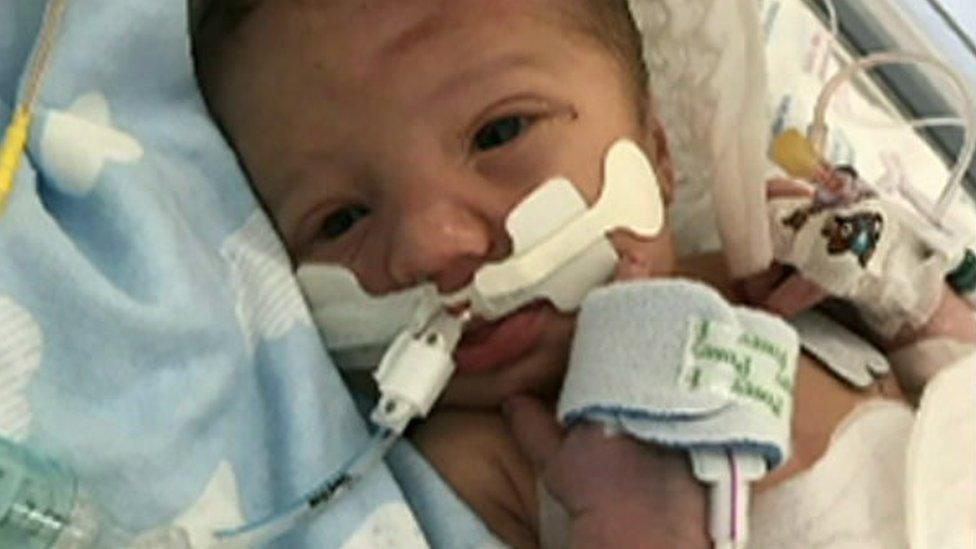Harry Richford: East Kent NHS Trust fined for failures over baby's death
- Published
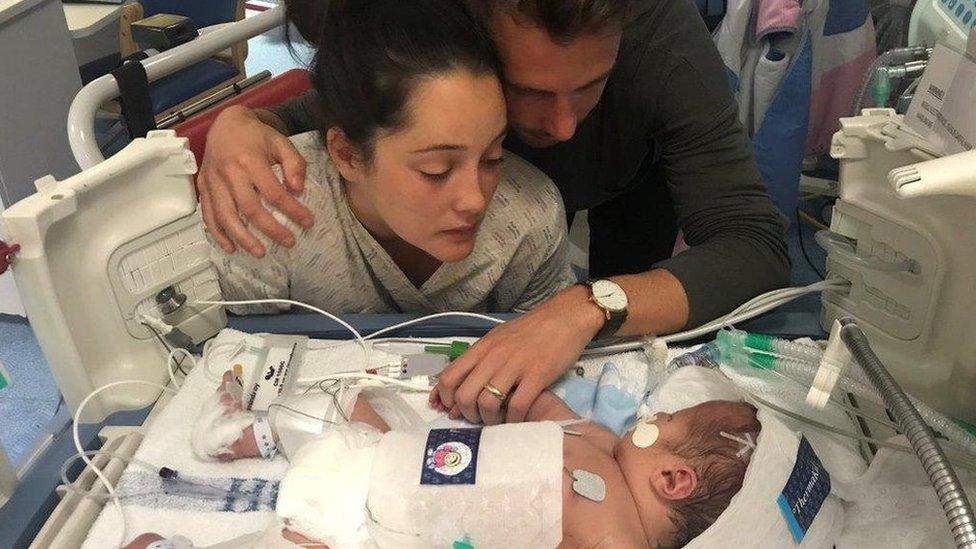
The NHS trust admitted failing Sarah Richford and baby Harry
An NHS trust has been fined £733,000 for failures in the case of a baby boy who died seven days after an emergency hospital delivery.
East Kent Hospitals had admitted failing to provide safe care and treatment for mother Sarah Richford and her son, Harry, in Margate in 2017.
The case followed an inquest that found Harry's death was "wholly avoidable".
The total £1.1m fine was reduced to £733,000 due to the guilty plea. The trust apologised to the family.
The trust was also told to pay legal costs of £28,000, following the Care Quality Commission (CQC) prosecution.
At Folkestone Magistrates' Court, district judge Justin Barron told Mrs Richford and her husband Tom: "The trust fell far short of the appropriate standards of care and treatment in dealing with you."
He said the failures led to "the greatest harm imaginable".
He added the trust was "very much under the spotlight" and it was important it took action to restore confidence in its standard of care.
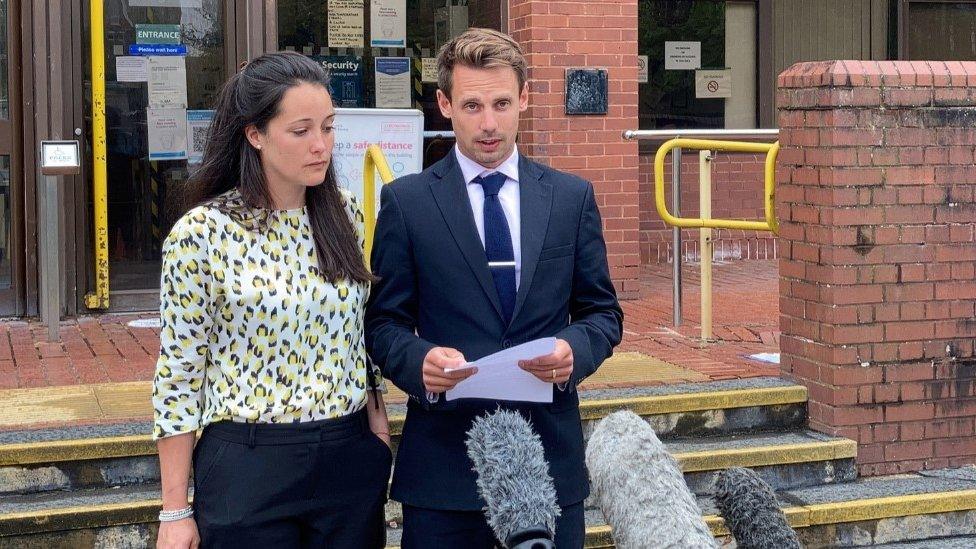
Outside court, the Richfords said they had "needed to shine a light on the failings"
In court, Philip Cave, finance director for the trust and a member of the board, acknowledged a series of failures at East Kent Hospitals and apologised to Mr and Mrs Richford.
He said: "I wish to emphasise that the trust does have insight into the failures that led to baby Harry's death and the psychological injury caused to Mrs Richford."
'Long-lasting change' sought
In April, lawyers for the trust admitted one count of failing to provide safe care and treatment, resulting in avoidable harm to Harry and Sarah Richford.
In a statement following the sentencing, the Richford family said: "Having our lives thrown into the public eye is not what anybody wants to do but sadly this was needed to shine a light on the failings which led to Harry's death in 2017."
The family said while they welcomed the sanction, they were unsure if the system was suitable for public-funded organisations.
They said: "Taking money away from a financially-challenged resource does seem counterintuitive and we would encourage policymakers to consider any alternative options."
The family also vowed to support future investigations into maternity safety to ensure "long-lasting change".
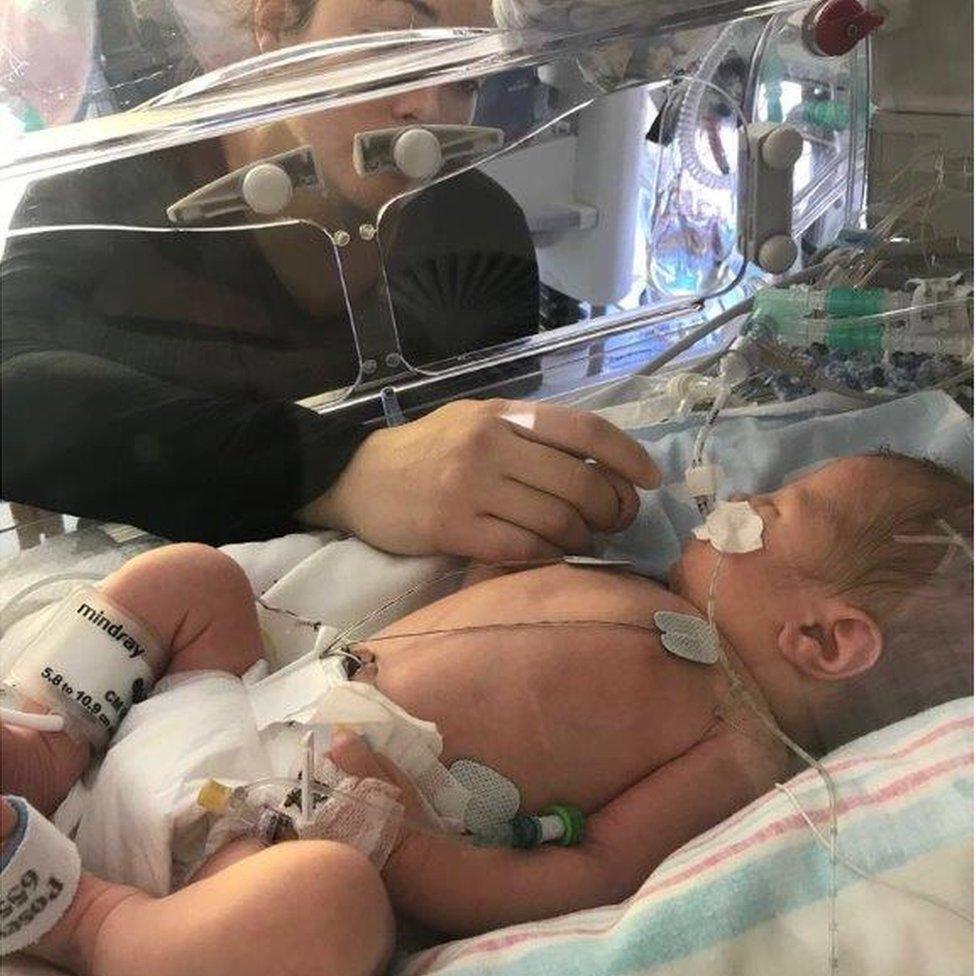
The case led to an independent review into maternity services at the trust

Analysis
By Mark Norman
Health correspondent, BBC South East
In every conversation I have had with the Richford family in the past two years they have spoken about three things.
Their concern was initially about finding the truth - until they realised Harry's death might have been avoided if the trust had learned from previous incidents.
Then, increasingly, the family sought systemic change in the East Kent maternity department so no-one else would experience what they had gone through.
For the trust, which successfully cares for hundreds of thousands of patients every year, the Richford case is about reputational damage, and it still isn't over.
Dr Bill Kirkup's investigation into almost 200 births at the trust is not due to report until late in 2022.
Part of his remit will be to reveal whether or not he believes East Kent Hospitals NHS has learned from this case and potentially hundreds more like it.

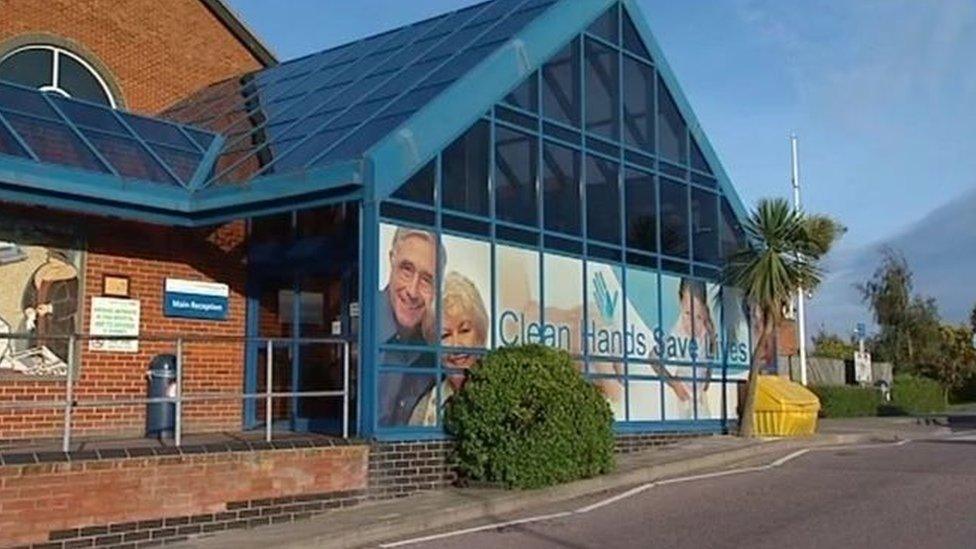
East Kent Hospitals Trust is being investigated over a number of maternity deaths
The inquest last year into baby Harry's death prompted a review after it emerged the trust may have had up to 15 preventable baby deaths.
During the inquest, more than a dozen areas of concern were highlighted over the care of Harry and his mother, including failings in the way an "inexperienced" doctor carried out the delivery, followed by delays in resuscitation.
Coroner Christopher Sutton-Mattocks was told Harry was born not crying, pale, and with no movement in an operating room "full of panicking people" at the Queen Elizabeth the Queen Mother Hospital (QEQM).
He found Harry's death was contributed to by neglect.
When Harry was less than nine hours old he was transferred to a neo-natal intensive care unit in Ashford where he survived for a week with the aid of life support, the inquest heard.
Mrs Richford told the BBC she and her husband were unable to hold him "until the day that he died".
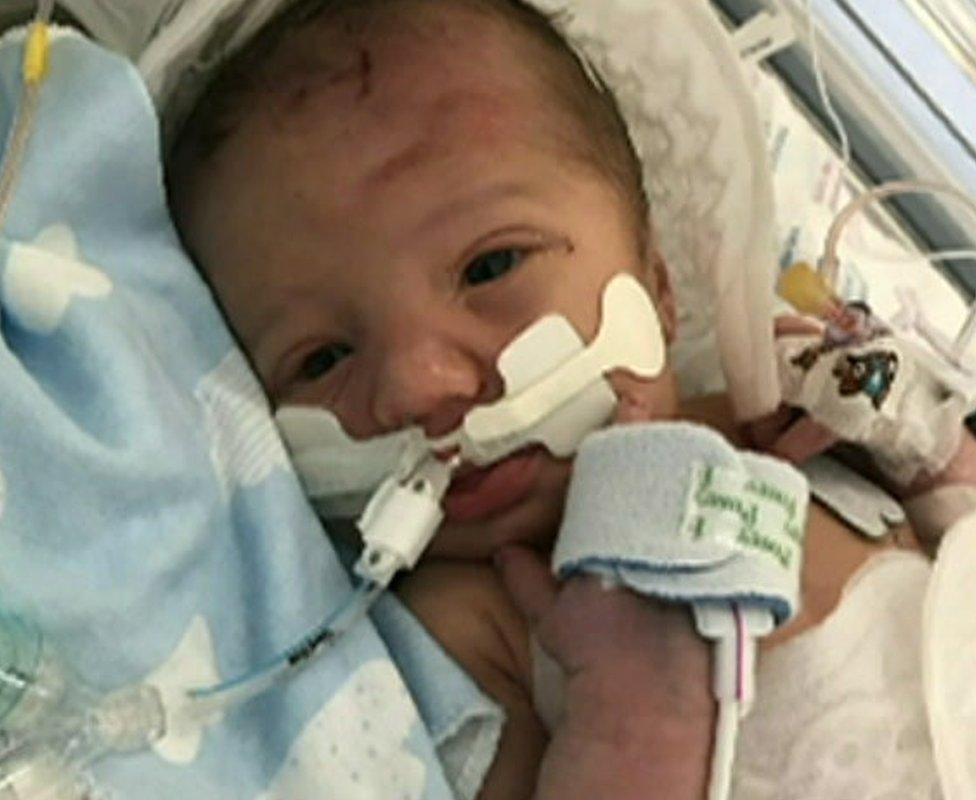
Harry Richford died a week after he was born at Margate's Queen Elizabeth the Queen Mother Hospital in 2017
After the sentencing, Nigel Acheson, the CQC's deputy chief inspector of hospitals, said: "The trust's acceptance of responsibility for the errors in Harry and Sarah's care is welcome, but the fact remains that the series of events which led up to Harry's death could and should have been avoided."
He said: "In most cases pregnancy and birth are a positive and safe experience for women and their families. But the death or injury of even one new baby or mother is one too many."
Speaking outside court, Niall Dickson, chairman of the trust, said: "Harry's parents expected that they would return home with a healthy baby and we failed them.
"I know that today we have more senior doctors, more stringent checks on those we employ, we have better training for our maternity staff and better monitoring of babies during labour.
"But there is more to do and we will continue to build on the steps that have been taken."

Follow BBC South East on Facebook, external, on Twitter, external, and on Instagram, external. Send your story ideas to southeasttoday@bbc.co.uk
- Published17 June 2021
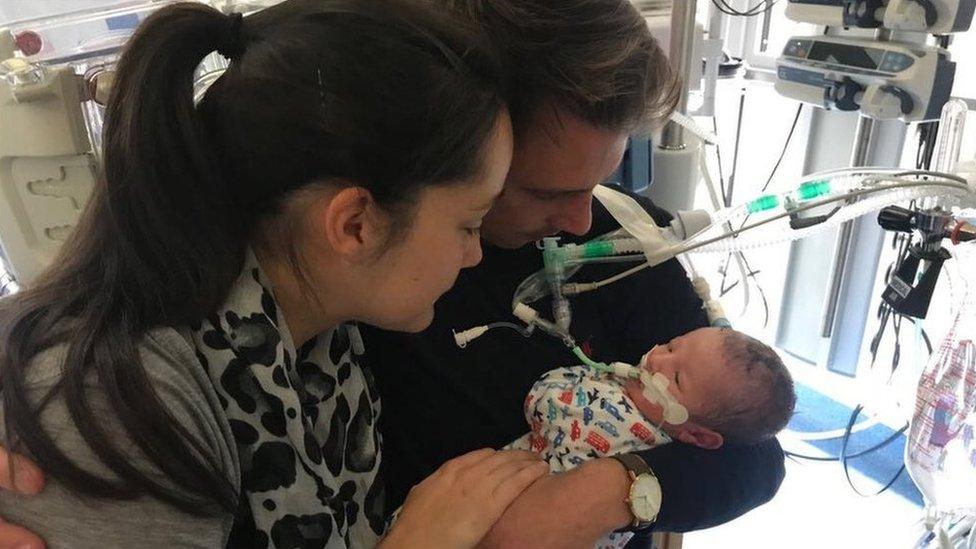
- Published19 April 2021

- Published9 October 2020
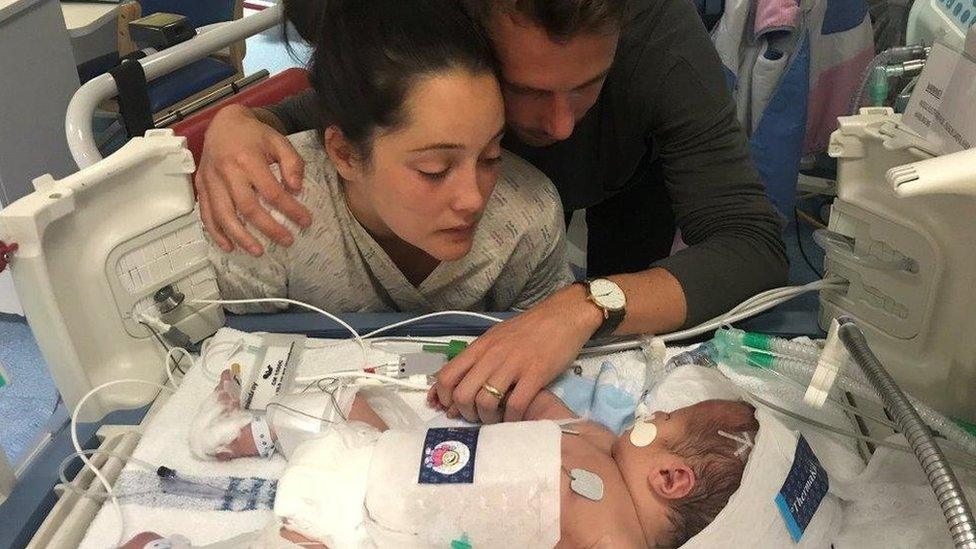
- Published29 June 2020
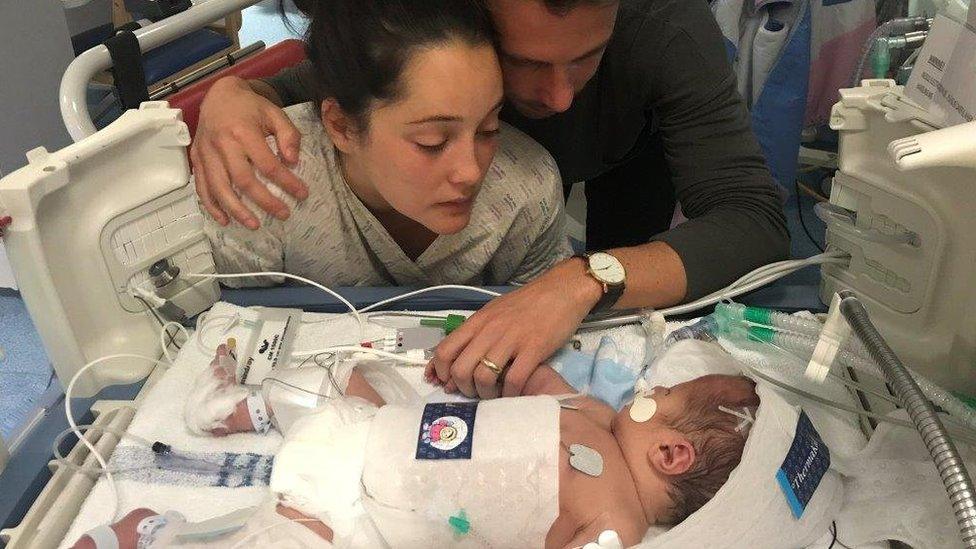
- Published13 February 2020
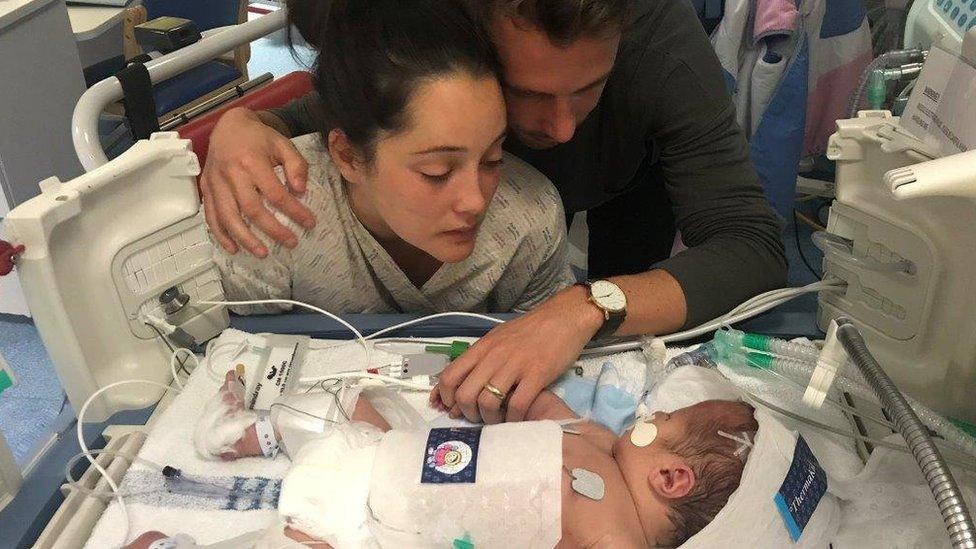
- Published24 January 2020
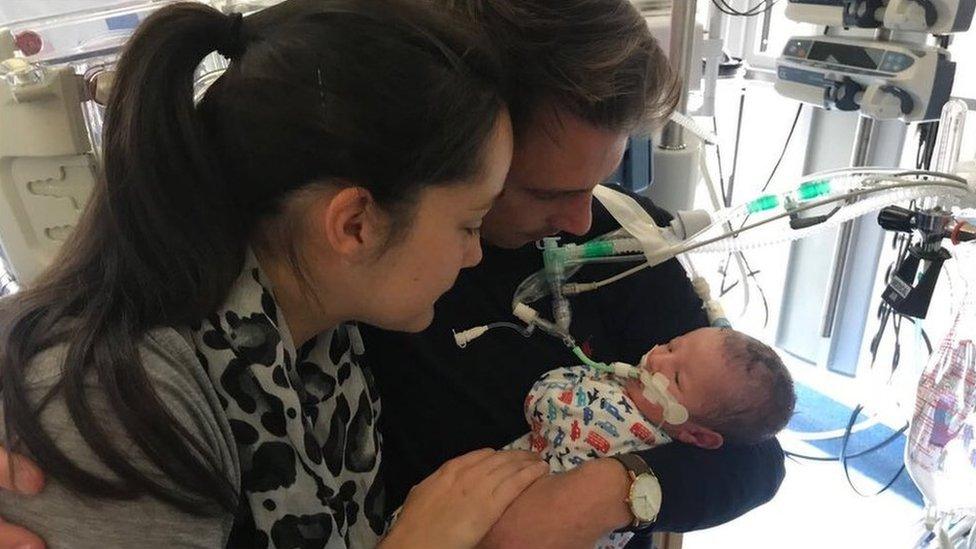
- Published13 January 2020
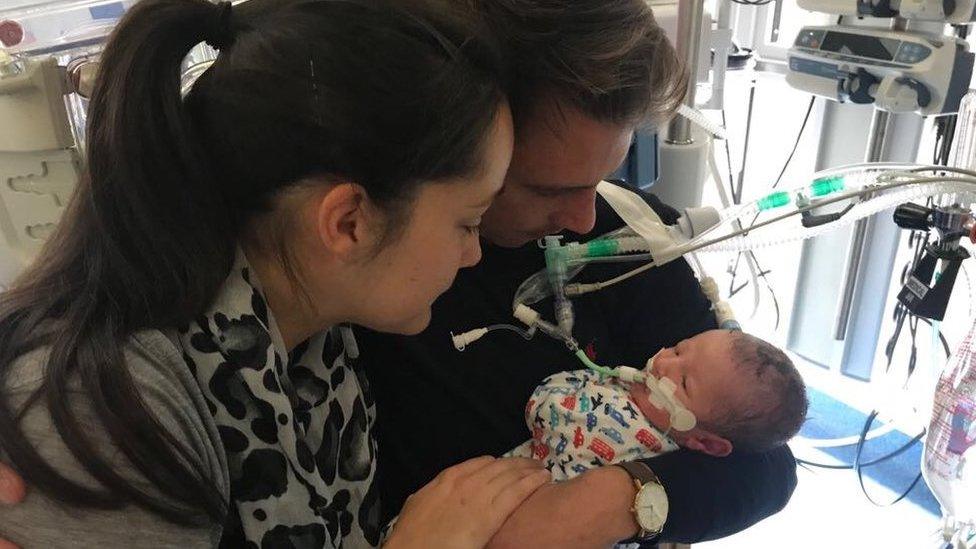
- Published10 January 2020

- Published9 January 2020
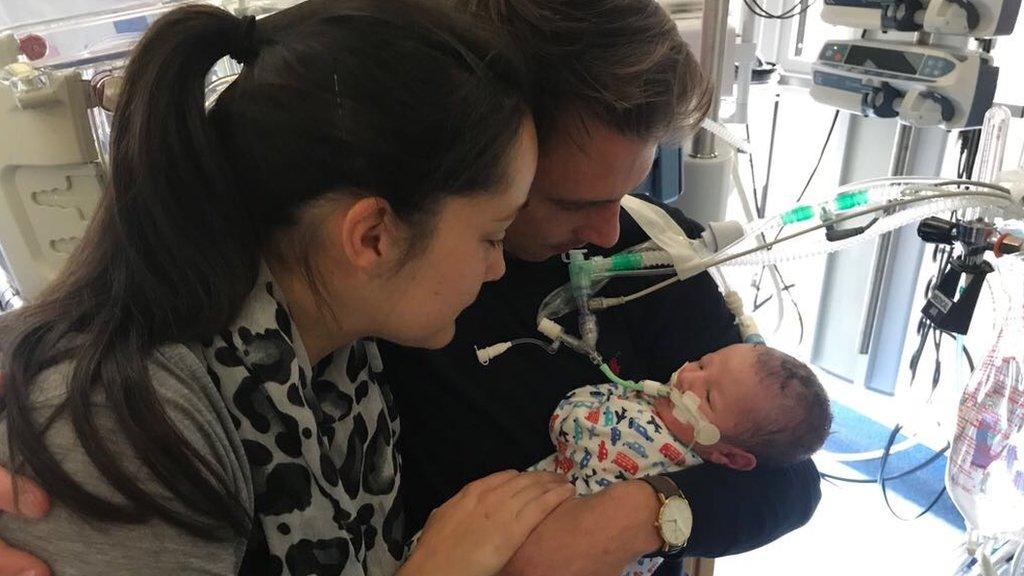
- Published8 January 2020
